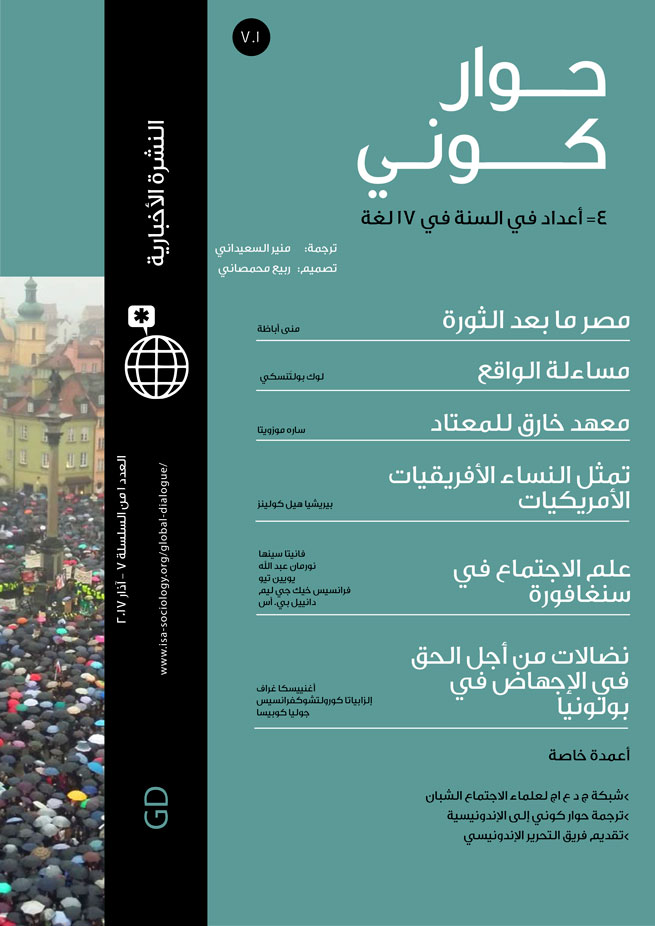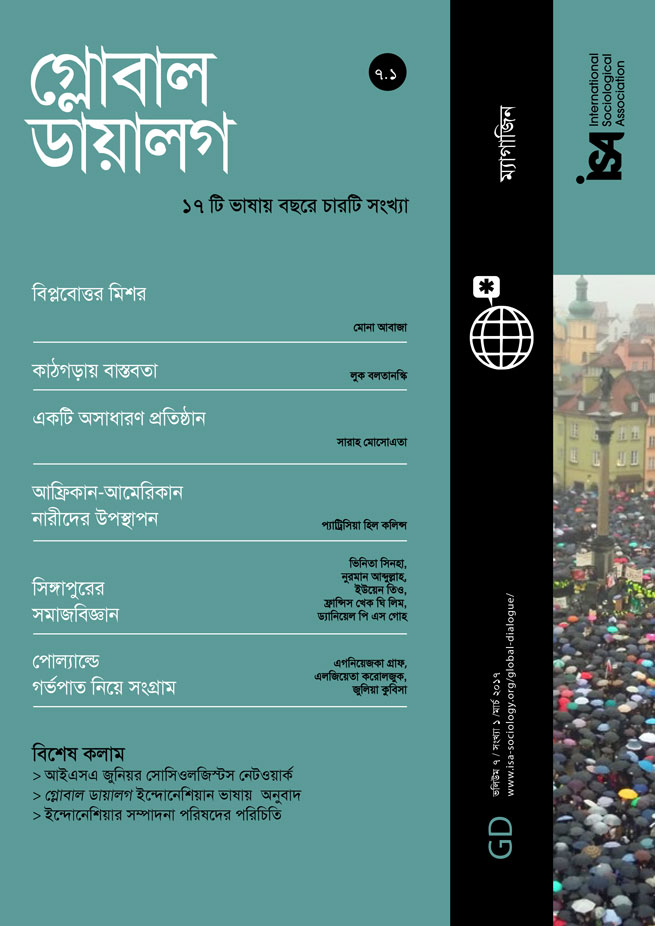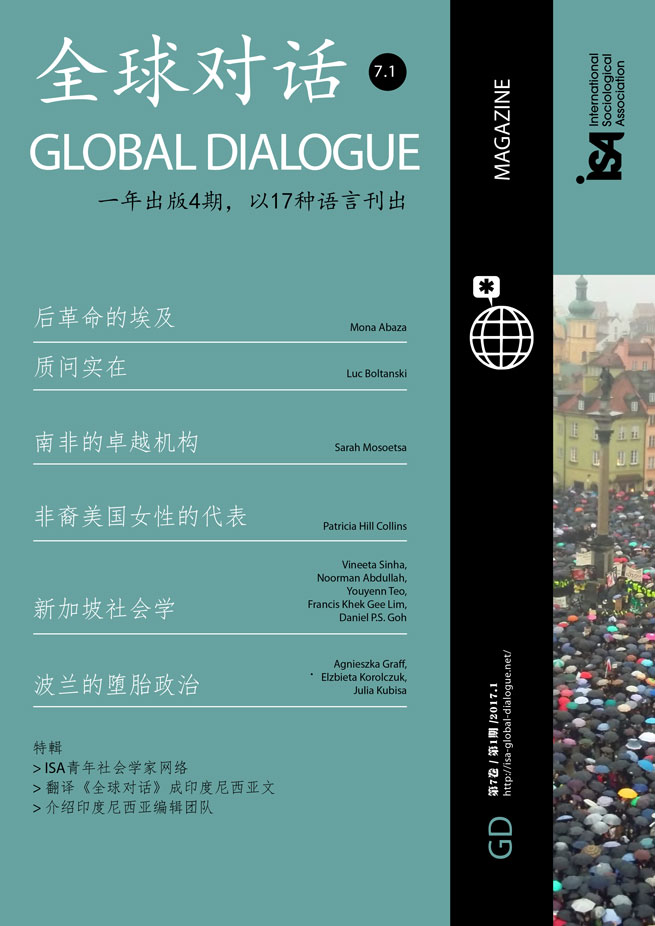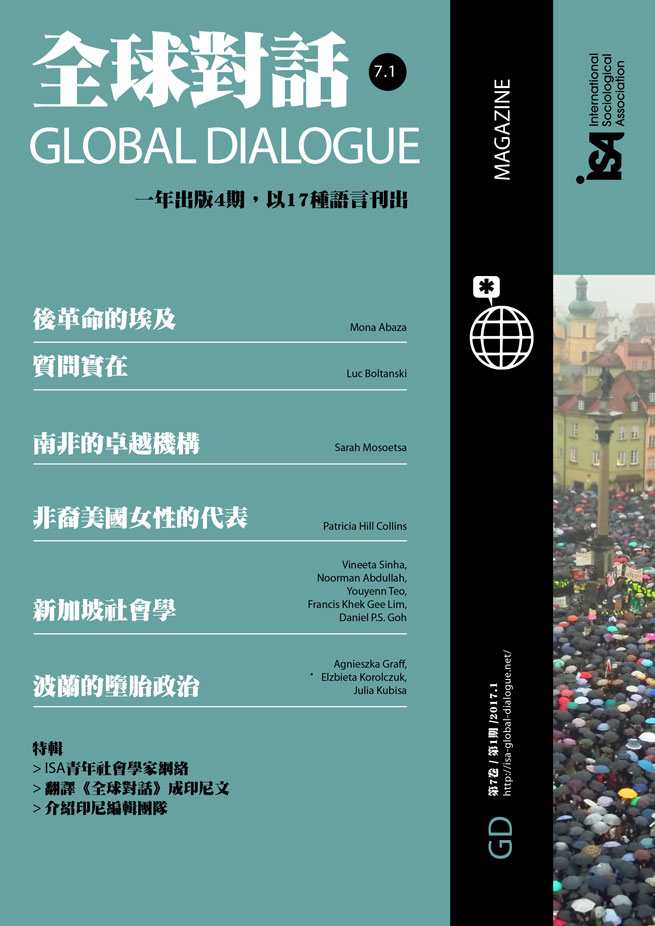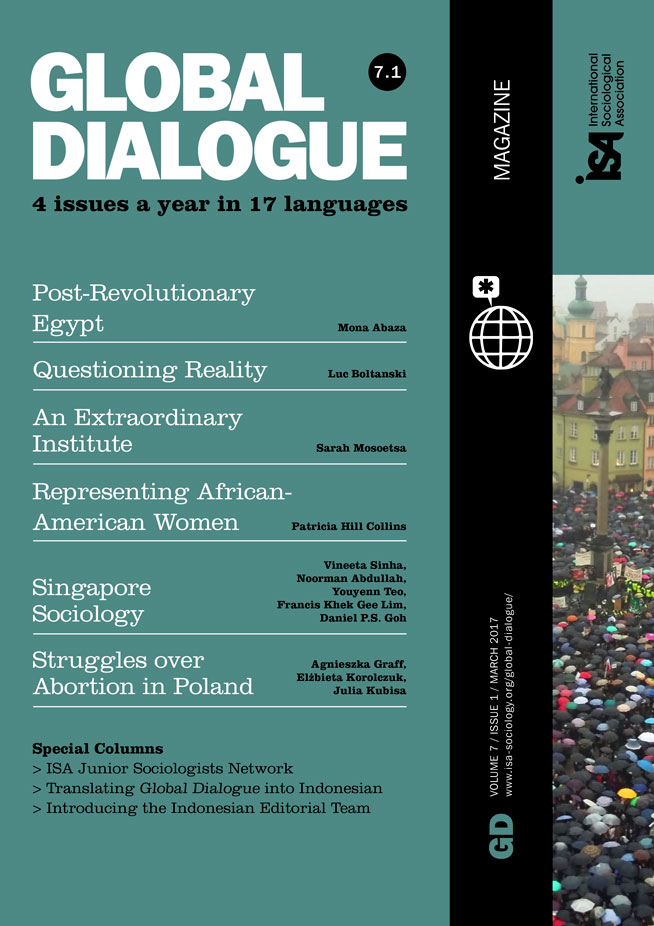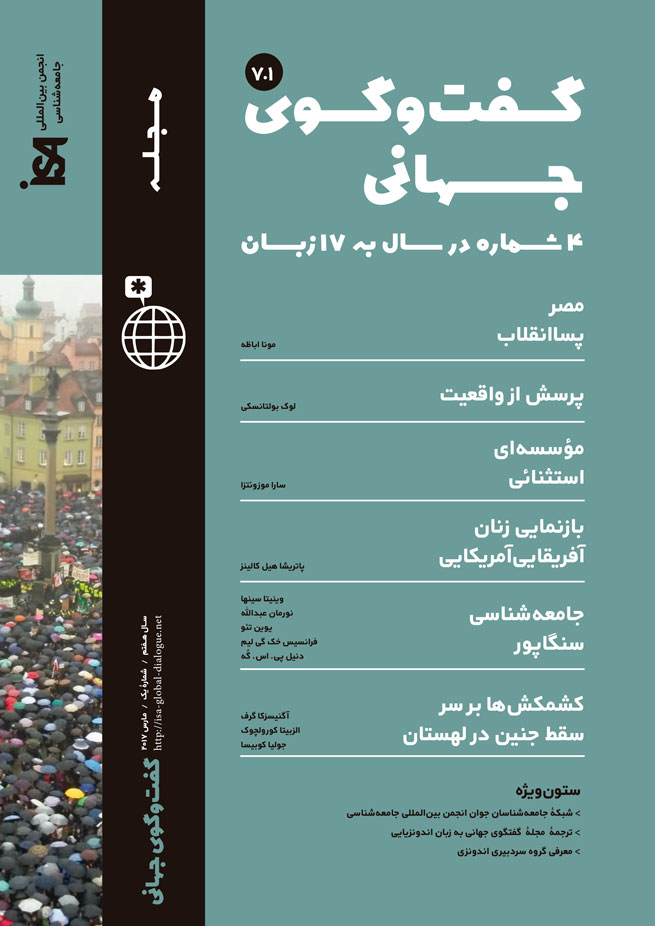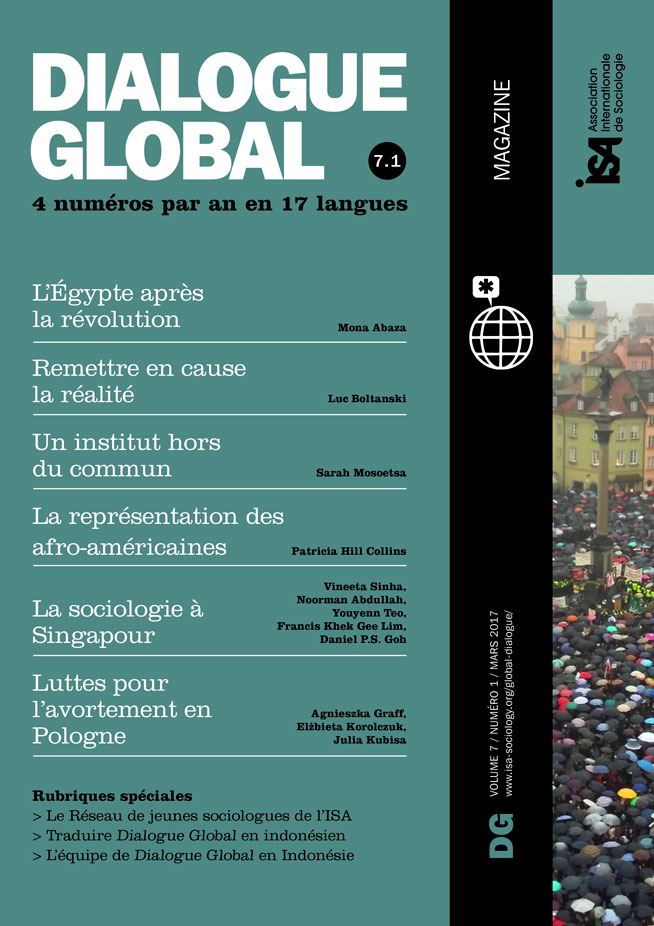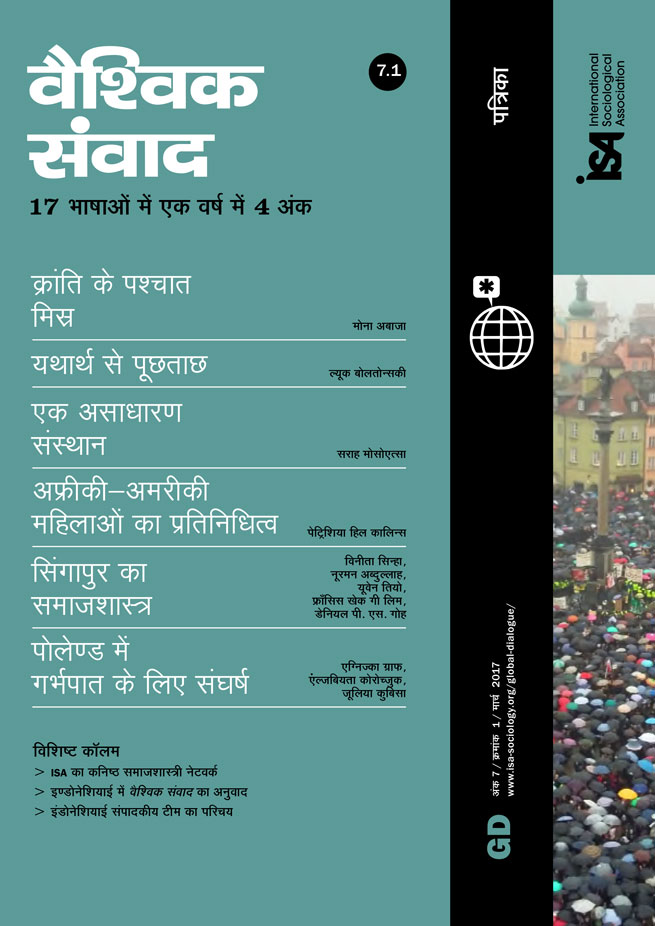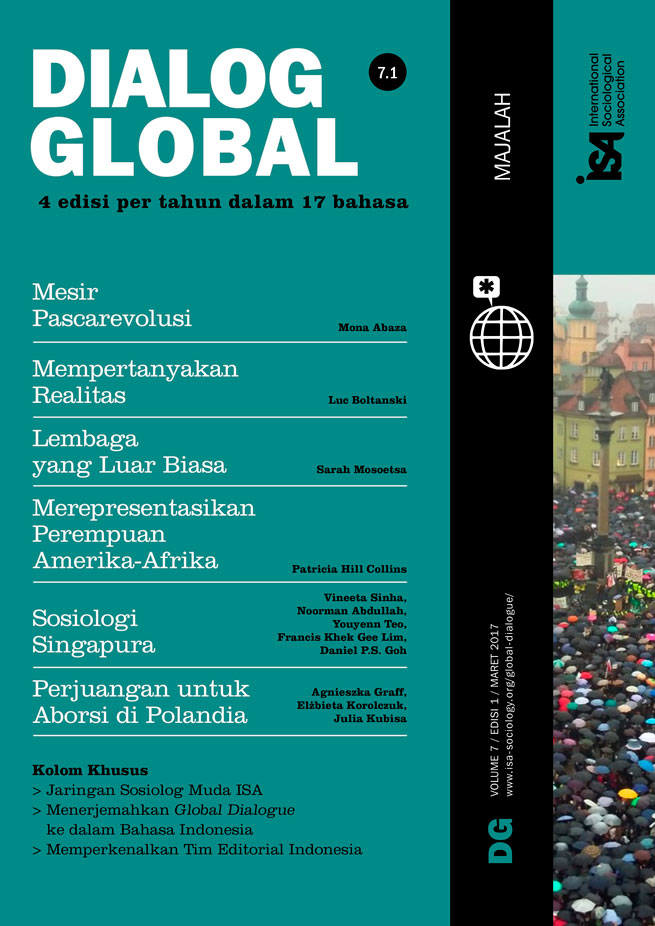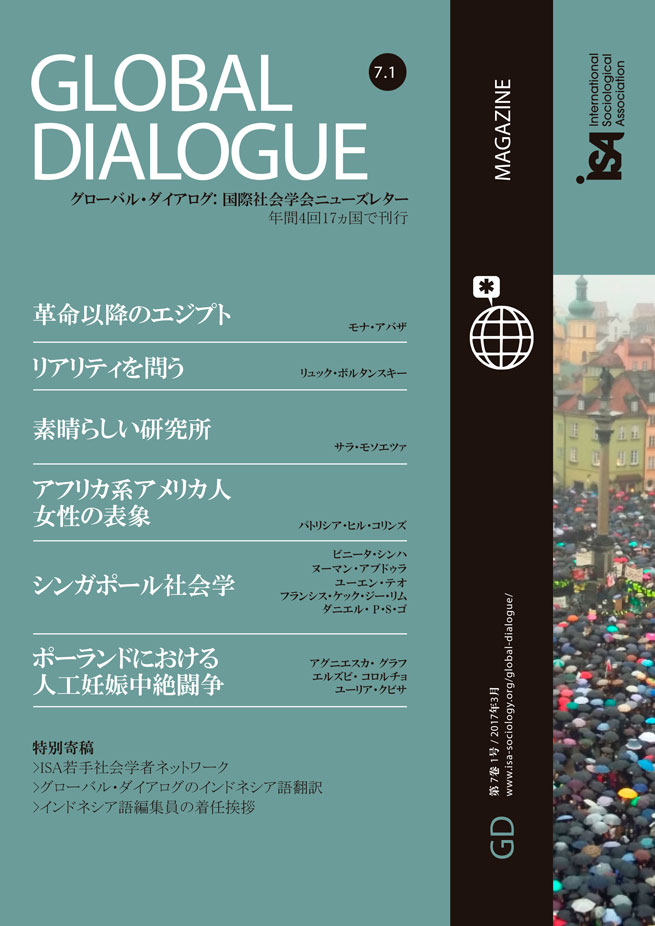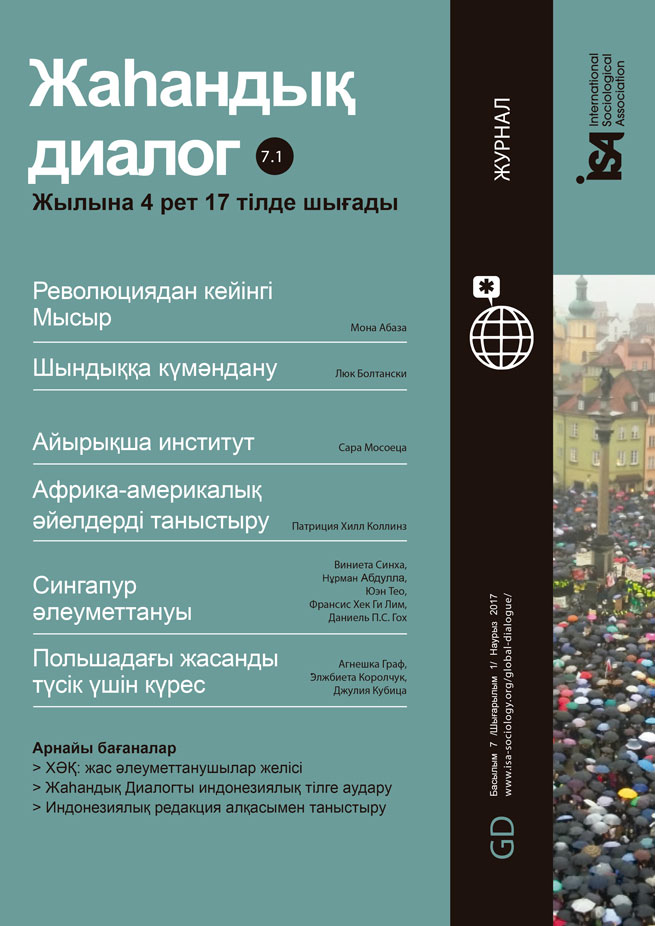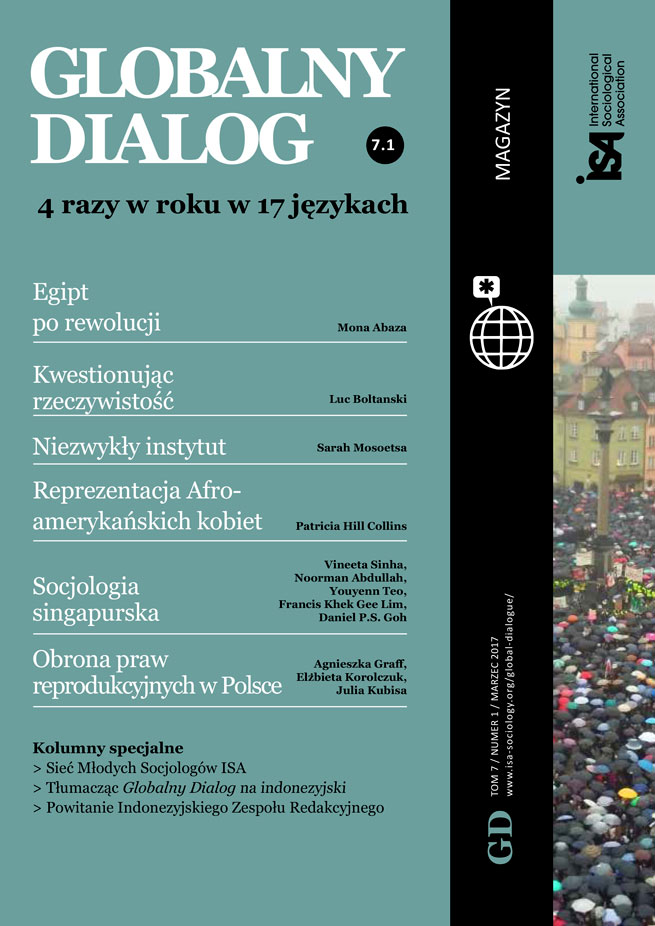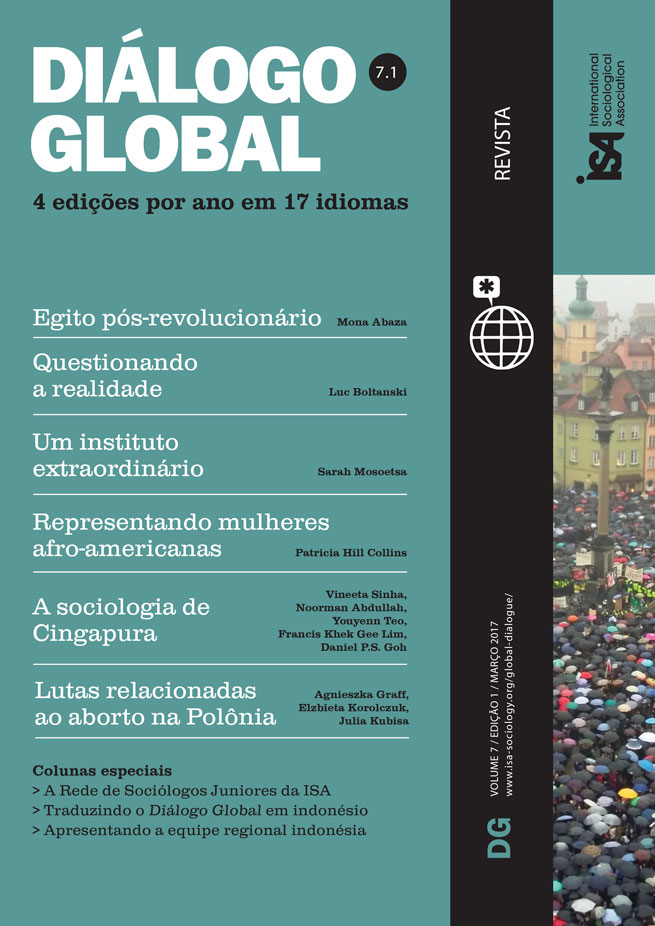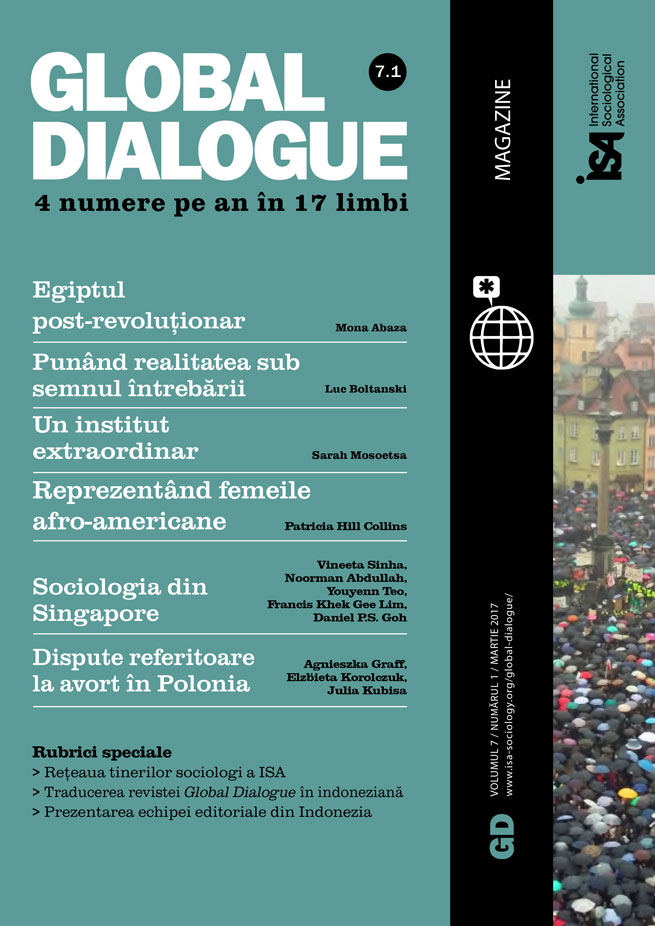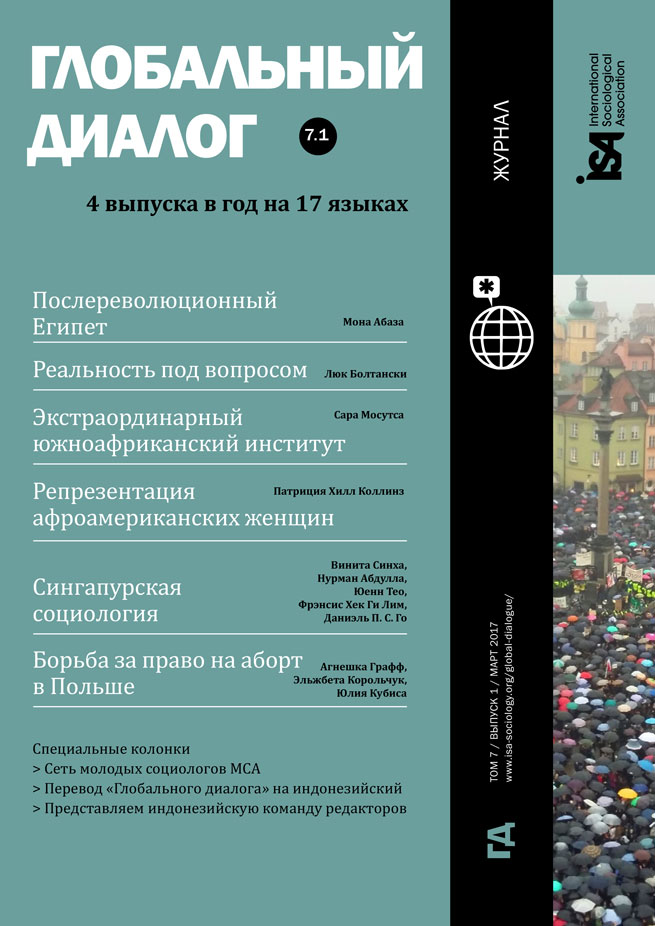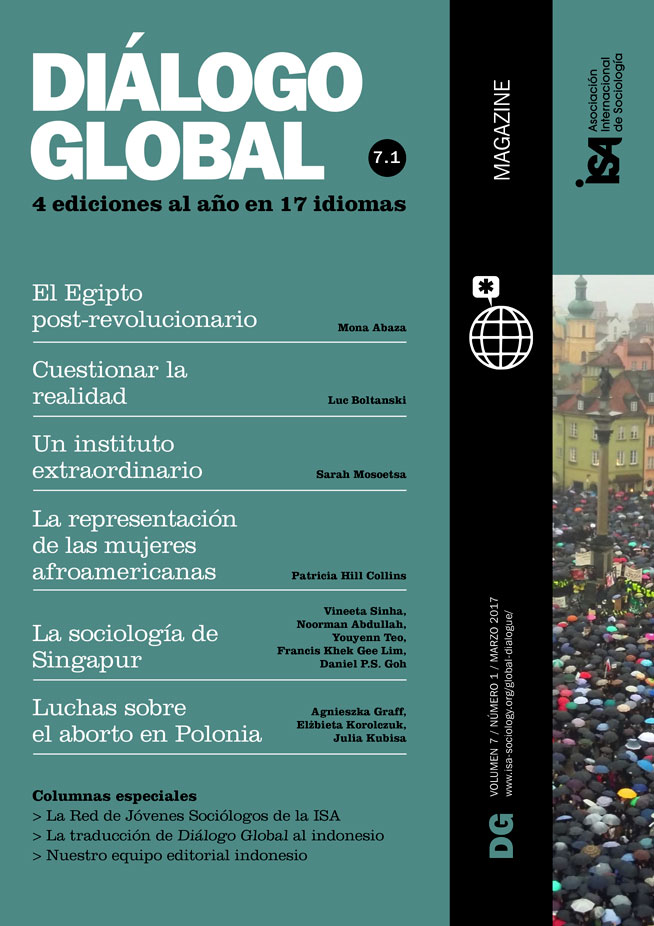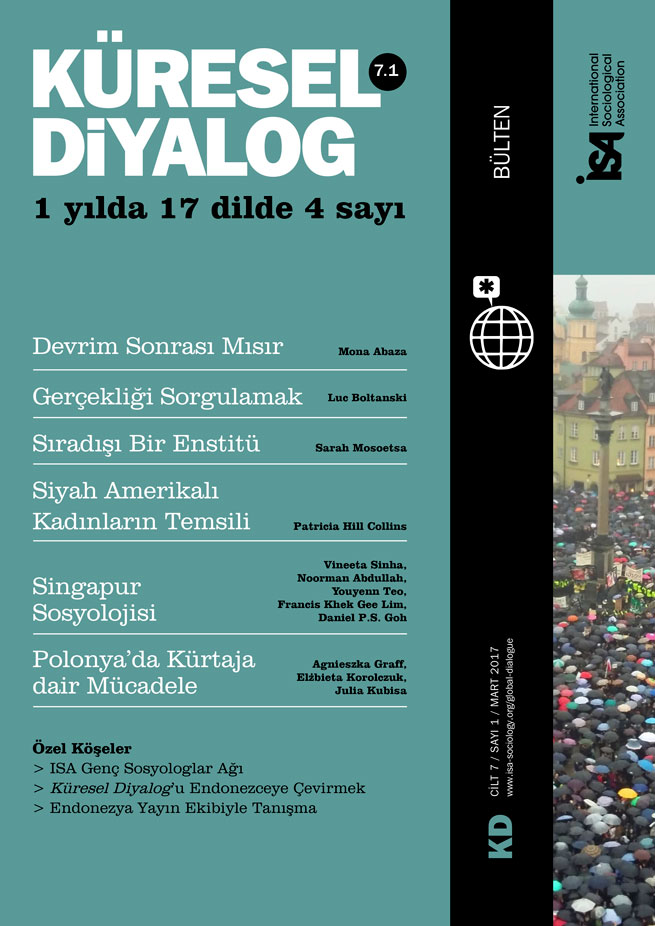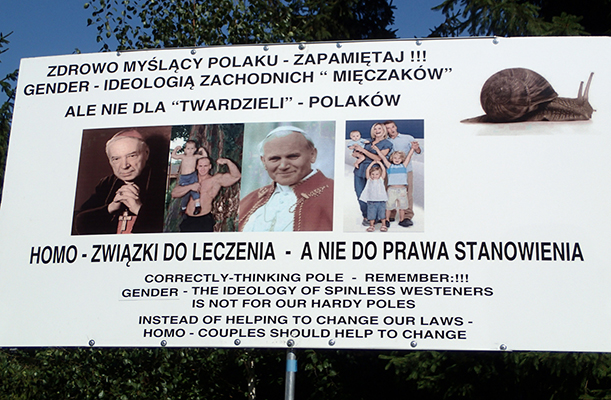Read more about Struggles over Abortion in Poland
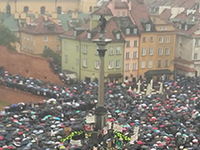
Defending Reproductive Rights in Poland
by Julia Kubisa
February 17, 2017
Gender matters in global politics. After the US elections, we know this better than ever: the mass appeal of Trump’s blatant misogyny is just a part of the problem. Populism in the US and elsewhere feeds not only on economic instability and fear, but also on anxieties around gender relations, (homo)sexuality and reproduction. In country after country, critiques of what conservatives (especially Catholics) term “gender” or “genderism” – gender equality policies, sex education, LGBTQ and reproductive rights – have helped to mobilize men as well as women, paving the way for populist leaders. While opposition to feminism and gender equality policies is not new, the current upsurge marks a departure from the previous neoconservative paradigm: social conservatism is now explicitly linked to hostility towards global capital.
In Poland, the 2015 electoral victory of the right-wing populist Law and Justice party was preceded, and arguably enabled, by a campaign against “genderism” in conservative media and religious discourse. Since 2012, Poland’s Catholic Church and conservative groups have undertaken many initiatives, opposing the use of the term “gender” in policy documents and public discourse, fighting gender-equality education and legislation (e.g. ratification of the Istanbul Convention on preventing and combating violence against women and domestic violence), and seeking to limit sexual and reproductive rights. The campaign has included Catholic religious leaders, conservative politicians, right-wing think tanks and anti-choice groups. Other groups have joined in; for example, a parents’ grassroots mass movement Ratujmy Maluchy! (Save the Little Ones!), which emerged around 2009 to oppose educational reform, joined the fight against the Istanbul Convention on the grounds that measures designed to counteract domestic violence posed a threat to parental authority. Grassroots organizations and networks have helped to mobilize large numbers of people, especially concerned parents, worried about the supposed threat to their children posed by “the homosexual lobby” and sexual educators. Anti-genderists claim to protect children and family, and Polish cultural and religious values, from feminists, LGBTQ and human rights activists, allegedly supported by liberal politicians and the corrupt West. In this anti-gender discourse, the ruling party at the time, the conservative-liberal Civic Platform, was often portrayed as part of the extreme left, and was accused of seeking to destroy the “traditional” family and the Polish Nation, at the bidding of foreign institutions, such as the European Union.
In this conservative assault, “gender” is not a label used to discuss sex difference or to analyze the construction of masculinity and femininity. Rather, “gender” is consistently presented as an international conspiracy, stemming from the sexual revolution and/or communist-style enforced gender equality. Supported by transnational bodies such as the UN and global capital, “genderists” allegedly aim to promote abortion, moral decadence and perversion, as well as rampant individualism which destroys communities and traditional families. Enforcing arbitrary sex-change on innocent children is alleged to be one of the movement’s goals; the concept of “gender” is consistently associated with the abolition of sex difference as well as chaos in the realm of human sexuality, which leads to de-population in some parts of the world.
Anti-genderism is not just a Polish peculiarity. A similar discourse can also be found elsewhere. In contemporary Russia, claims that homosexuals and promoters of gender equality threaten local traditional values have strengthened popular support for Putin’s regime; in France, mass mobilization against gay marriage clearly contributed to the popularity of the National Front. In the US, Donald Trump’s open misogyny did not prevent his victory, nor did voters seem mobilized by the possibility of electing the country’s first female president (in fact, 53% of white American women voted for Trump). What is the connection between the rise of right-wing populism and anti-genderism? These two ideologies converge not only in the promotion of a socially-conservative vision of gender relations, but also in the targeting of liberal elites as responsible for the economic and social decline of the population at large.
We have developed our analysis through participation in several collaborative projects that respond to recent anti-gender campaigns in Europe, as well as through our activist experience, which includes participation in several initiatives targeted by Poland’s anti-gender campaign. We have analyzed numerous texts: books and articles written by key voices in the anti-gender circuit; interviews and public statements by key proponents of anti-genderism (including two popes, local Catholic leaders and intellectuals); media coverage of anti-gender events; and various materials published on the websites of movements and organizations, such as the Polish network www.stopgender.pl and international platforms such as www.citizengo.org or www.lifesitenews.com.
All “anti-gender” texts display a sense of imminent danger from liberal elites, including feminists, who are portrayed as dangerous and powerful. Opponents of gender equality and gay rights, in contrast, claim to represent common people, who are described as hardworking and devoted to their families. Importantly, the underlying sense of victimhood has both cultural and economic dimensions: “genderists” are viewed as well-funded and well-connected to global elites; common people are viewed as paying the price of globalization. This interconnected cultural and economic dynamic is clearly reflected in anti-genderism’s preferred discursive strategy: the use of a conservative version of an anti-colonial frame. Genderism is consistently presented as a foreign imposition, equated with colonization, and compared to twentieth-century totalitarianisms and global terrorism. This argument is disconnected from debates about actual historical colonial domination by the West, but it is frequently used even in countries with no obvious colonial history, such as Poland. As in all populist narratives, this rhetoric opposes a corrupt international elite, which exploits common people and “the people” themselves, presented as local, authentic and embattled.
A telling example of this kind of anti-gender discourse came from Poland’s then-Minister of Justice Jarosław Gowin, who in 2012 forcefully opposed the ratification of the Istanbul Convention. He claimed that the Convention is a “carrier of gender ideology,” an ideological Trojan Horse whose hidden agenda was the dismantling of traditional families and local cultural values. Similarly, in January 2016, Pope Francis warned the faithful against “gender ideology” as a dangerous imposition by wealthy Western countries, a form of ideological but also economic colonization. According to the Pope, foreign aid and education are routinely tied to gender equality policies, but “good and strong families” can overcome this threat.
In their description of “genderism,” leaders of the Catholic Church, right-wing fundamentalists and the pundits of the anti-gender movement link ideological colonization with economic power – a power crucially described as located in transnational institutions and corporations. In Poland, most activists point to the European Union; but other international bodies, foundations and associations are targeted as well, including the Global Fund to Fight AIDS, Tuberculosis and Malaria, WHO, the UN or UNICEF, and the World Bank. In the Polish context, anti-genderists have also targeted civil society structures founded in the 1990s by Western donors, especially LGBTQ rights groups such as the Campaign against Homophobia (KPH).These groups are portrayed as agents of foreign corrupt elites. As the key European anti-genderist authority, Gabrielle Kuby put it in an interview for the Catholic World Report:
This global sexual revolution is now being carried out by power elites. These include international organizations like the United Nations and the European Union, with their web of inscrutable sub-organizations; global corporations like Amazon, Google, and Microsoft; the big foundations like Rockefeller and Guggenheim; extremely rich individuals like Bill and Melinda Gates, Ted Turner, Georges Soros, and Warren Buffett; and non-governmental organizations like the International Planned Parenthood Federation and the International Lesbian and Gay Association.
Despite its emphasis on “local” and “authentic” values, the anti-gender movement is strengthened by a transnational network, including organizations such as the World Congress of Families and mobilizing platforms such as CitizenGO. For example, Poland’s Ordo Iuris Institute cooperates closely with World Youth Alliance Europe, the US-based Catholic Family and Human Rights Institute, European Dignity Watch based in Brussels, and the British Society for the Protection of Unborn Children, one of the world’s oldest anti-choice organizations. Despite these transnational ties, anti-genderists routinely employ an anti-elitist discourse, referencing ordinary people’s dignity and their identity as an oppressed majority to mobilize supporters, successfully appealing to legitimate anxieties concerning the future of their families and children.
Conservative actors have managed to harness a growing sense of anxiety and economic instability caused by neoliberal ideology and policies. These sentiments are channeled into anger against decadent elites, portrayed in Poland as morally corrupted “Euro-enthusiasts” (one extreme right-wing slogan is: “Pedophiles and Pederasts, these are Euro-enthusiasts!”), or represented in the US by references to “crooked Hillary.” The new wave of anti-genderism builds on opposition towards gender equality policies and discourses dating back to the late 1970s, but it also reflects a transnational resurgence of illiberal populism and local nationalism. By presenting itself as a movement defending “authentic” local values and common people against foreign global forces and rich corrupt elites, by equating “gender” with rampant individualism and cultural and economic exploitation, this strategy paves the way for political successes of illiberal populism. Anti-genderism has become a new, conservative language of resistance to neoliberal globalization.
Agnieszka Graff, University of Warsaw, Poland <abgraff@go2.pl>
Elżbieta Korolczuk, Södertörn University, Sweden, and member of ISA Research Committees on Women and Society (RC32) and Social Classes and Social Movements (RC47) <bekorol@gmail.com>
This issue is not available yet in this language.
Request to be notified when the issue is available in your language.
If you prefer, you can access previous issues available in your language:
